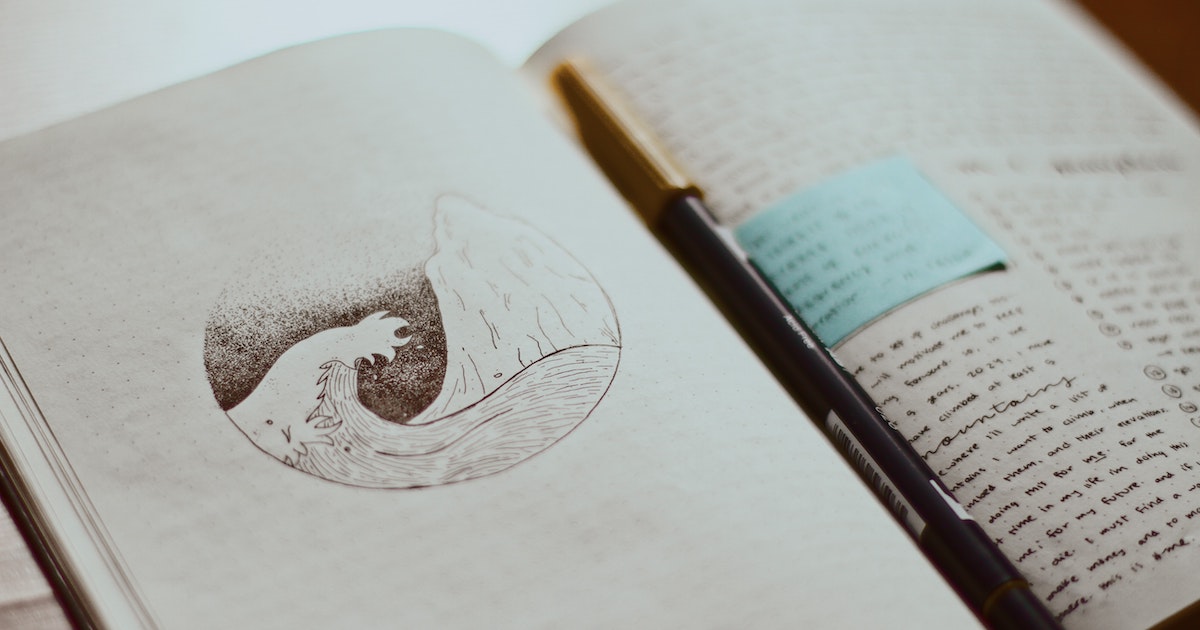This article answers the following question:
1. What does dream recall depend on?
2. How do you keep an insightful dream journal?
What does dream recall depend on?
Dreaming, defined as mental activity during sleep, occurs every night in every person.
It is estimated that people dream on average five times per night, with some people dreaming as many as seven times.
Even though we all dream , dream recall varies considerably between individuals and even within one person from night to night.
Over the past few decades, many factors have been studied that might explain this variation, like personality traits, age, gender, habitual sleep duration, and nocturnal awakenings (Schredl, 2007). For example, it has been shown that if the sleeper is awakened from REM sleep, dream recall rates are very high: 80 to 90 percent of the awakenings in that time window brought about some kind of dream report.
In this article Interesting Facts about Dreams you can find other interesting science-supported differences in dreaming.

An interesting paper published in the academic journal Dreaming in 2016 showed that spiritual practices like meditation (or meditation-like activities) and related techniques of contemplation like Autogenic Training are correlated with an increased dream recall frequency.
Undergoing psychotherapy also increases dream recall whereas cognitive avoidance practices like saying to yourself, “this was just a dream and I want to try to forget it as quickly as possible” play an important role in chronifying nightmares (Schredl, 2013).
In fact, mindfulness was related to a reduction in nightmare frequency.
As described in part 1 of this article, dreams can play a key role not only in the work of psychologists, scientists, artists, and even mathematicians. Anyone who might be interested in getting insights from their night brain activity can benefit from dreaming.
What role do dreams play in your life?
You can figure that out if you start keeping a dream journal!

How to keep a Dream Journal
Below I’ll guide you through all the steps to follow in order to start dream-journaling. There is nothing difficult in it and the insights you can get will be rewarding and useful for both your personal and professional life.
You gotta have a Journal!
As you might imagine the most fundamental thing in order to start dream journaling is having a journal.
Either buy a new journal or repurpose an old one, but either waymake sure to place it with a pen next to the bedside. If you don’t want the go through the trouble of getting another notebook to keep track of, you can also get the Journalistic app.
If you choose the classic handwriting on a notebook, take care of using it exclusively for dreams or normal journaling – not for the shopping list!
Alternatively, if you can’t help but grabbing your phone first thing in the morning, tap into the Dream section of the Journalistic app and start typing your dreams at no extra effort.
Write your dreams down FIRST thing when you wake up
Exactly. You understood well.
Not second, not third.
Just write what you dreamed of as soon as you open your eyes.
In fact, we are all very familiar with sentences like “I remembered my dream so well when I woke up, but now I can’t recall any of it.”
The dream will fade away after a few minutes from your awakening, due to factors like the absence of the hormone norepinephrine in the cerebral cortex, a brain region that plays a key role in memory, thought, language and consciousness.
On top of that, your routine will get in the way along with your morning physical needs.
Before even realizing it, you will have missed a chance to get interesting and useful insights about your life!
Write as many details as you can
Even though your dream might look like just a bunch of bizarre images having no logical connections, do not let yourself be stopped by the lack of chronologic order.
You will actually be surprised to know that only two percent of dreams contain bizarre elements.
Write what you remember as best as you can without self-judgement. Afterall, the journal belongs to you and nobody else.
Write down the objects and landscapes, the people who appeared, the colours experienced, and the sentences exchanged.
Most importantly, write down your emotions. This is a very important clue for what is going on in your life.
If it’s necessary… draw!
Sometimes things are better explained with figures and sketches than words.
Don’t worry, you don’t need to be an artist in order to sketch a frightening landscape or a crazy machine you dreamed of. Remember, this process is for YOU!
The drawing will help you in recalling your feelings (and the whole dream) when you will look at it in the future.
Ask yourself: What does this dream mean?
Be your own therapist. For many, this can be the most difficult and unsettling part. Relating bizarre scenarios and unrealistic events to our waking life might seem absurd.
However, this part is the most crucial.
Calvin S. Hall, the researcher who applied the method of Content Analysis to dreams -- currently one the most used systems for interpreting dreams – said that images of a dream are the embodiment of thoughts.
Through his methodology, content researchers have found that the frequency of people and situations in dreams reveals the intensity of the dreamer's concerns. Whatever interests us or causes us anxiety will most likely play a part in our dreams.
No surprise that we dream about failing a test when the exam is approaching, right?
Writing dreams down is beneficial not only temporarily but on the long run
Dream journaling helps not only for getting temporary insights on how we are doing, but also on things, events or concept we might be processing over time.
In fact, content analysis also shows there is a consistency in a person's dreams over time. The same characters may appear in that person's dreams over decades, even after a character dies.
My experience
At some point between finishing my Bachelor’s and starting my Master’s, I found myself processing and developing my opinion on many social matters.
I was developing an interest in working with ethnic minorities, partly due to a research project on Female Genital Mutilation I was interning for, and also trying to adopt some environmental-friendly practices in my personal daily life. In my mind, I was trying to elaborate and giving personal answers to big concepts, like ethnocentrism, feminism, sustainability.
I soon found myself overwhelmed and started questioning whether I would have been able to speak up for myself (as a woman), speak up for vulnerable people, and defend the Earth all at the same time.
These concerns were reflected in a series of dreams I had in a two-week span.
In the first one I had to defend my body from someone who was trying to harass me; in the second I had to defend my opinion against some people accusing me of lying, and finally I had to take someone else’s side in the face of injustice (they had been charged 10 times the prices for a coffee).
Writing this series of dreams down has been an amazing tool for introspection and self-development for me.
In particular, it helped me with:
- gaining greater awareness of the social matters that were critical to me and the process through which I was trying to make them my own;
- understanding that those dreams were a call to action in lowering my stress level and doing something about it (in the same period I started going to yoga classes);
- understanding the progress I’ve made, over time, on certain matters and how I was dealing with a challenging phase of my life. Occasionally, I still skim through past dream journals in order to get this type of insights. For example, I compare my emotional wellbeing with my current one as well as my coping strategies.

I hope this helped and I am always interested in hearing your opinion.
Does this process resonate with you? Have you ever reflected on the meaning of your dreams thus far?
Join the discussion on Reddit and subscribe below to get notified when we publish new articles related to journaling, productivity, lifestyle and mental health.





